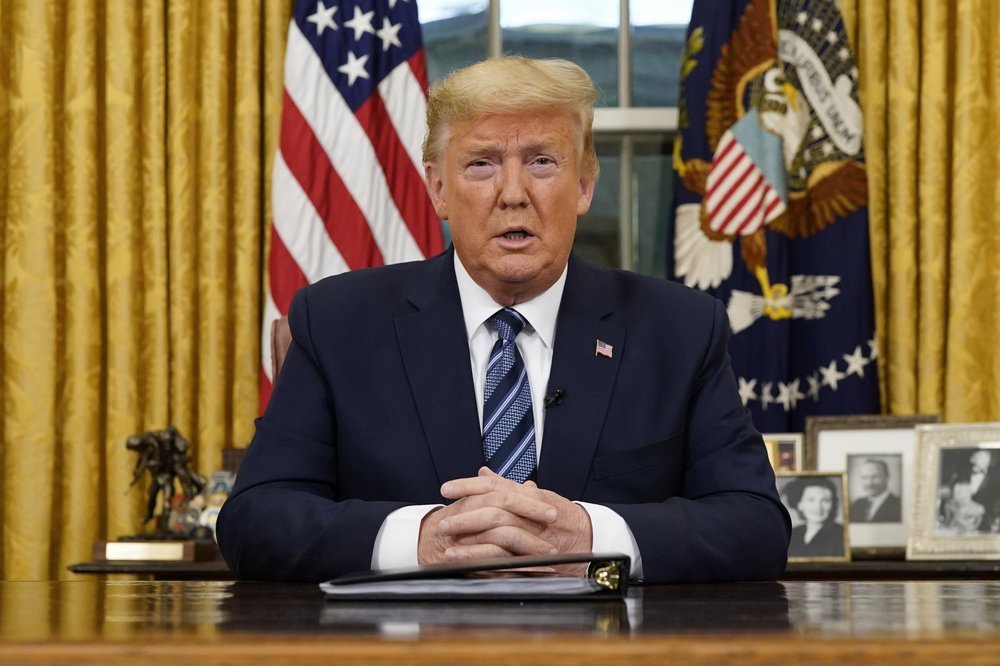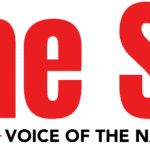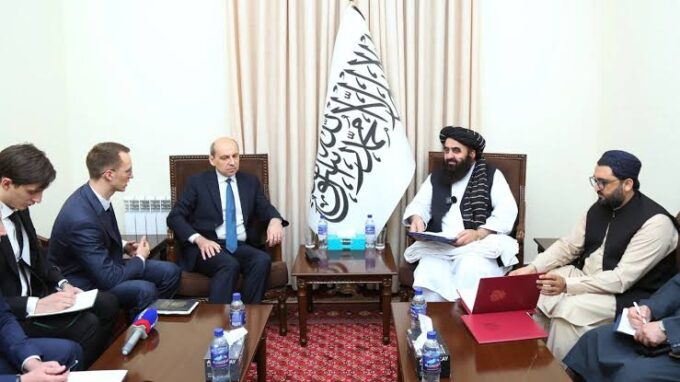August 01, (THEWILL) — US President, Donald Trump, has signed an executive order imposing reciprocal tariffs ranging from 10% to 41% on imports from dozens of countries.
The new trade policy, starting August 7, declared a “Universal” tariff of 10% for countries with which the US has a trade surplus, and 15% on 40 nations with which Washington has a trade deficit.
According to the modified America’s reciprocal tariff system, Nigerian exports to the United States will now attract a 15% tariff.
In addition to the reciprocal tariffs, the new trade policy establishes a 40 percent additional penalty on transshipments–goods that are shipped from a high-tariff country to a low-tariff country and then re-shipped to the United States.
Dated July 31, 2025, the new executive order reads in part: “By the authority vested in me as President by the Constitution and the laws of the United States of America, including the International Emergency Economic Powers Act (50 U.S.C. 1701 et seq.) (IEEPA), the National Emergencies Act (50 U.S.C. 1601 et seq.), section 604 of the Trade Act of 1974, as amended (19 U.S.C. 2483), and section 301 of title 3, United States Code, I hereby determine and order:
“Section 1. Background. In Executive Order 14257 of April 2, 2025 (Regulating Imports With a Reciprocal Tariff To Rectify Trade Practices That Contribute to Large and Persistent Annual United States Goods Trade Deficits), I found that conditions reflected in large and persistent annual U.S. goods trade deficits constitute an unusual and extraordinary threat to the national security and economy of the United States that has its source in whole or substantial part outside the United States. I declared a national emergency with respect to that threat, and to deal with that threat, I imposed additional ad valorem duties that I deemed necessary and appropriate.
“I have received additional information and recommendations from various senior officials on, among other things, the continued lack of reciprocity in our bilateral trade relationships and the impact of foreign trading partners’ disparate tariff rates and non-tariff barriers on U.S. exports, the domestic manufacturing base, critical supply chains, and the defense industrial base. I also have received additional information and recommendations on foreign relations, economic, and national security matters, including the status of trade negotiations, efforts to retaliate against the United States for its actions to address the emergency declared in Executive Order 14257, and efforts to align with the United States on economic and national security matters.
“For example, some trading partners have agreed to, or are on the verge of agreeing to, meaningful trade and security commitments with the United States, thus signaling their sincere intentions to permanently remedy the trade barriers that have contributed to the national emergency declared in Executive Order 14257, and to align with the United States on economic and national security matters. Other trading partners, despite having engaged in negotiations, have offered terms that, in my judgment, do not sufficiently address imbalances in our trading relationship or have failed to align sufficiently with the United States on economic and national-security matters. There are also some trading partners that have failed to engage in negotiations with the United States or to take adequate steps to align sufficiently with the United States on economic and national security matters.
“After considering the information and recommendations that I have recently received, among other things, I have determined that it is necessary and appropriate to deal with the national emergency declared in Executive Order 14257 by imposing additional ad valorem duties on goods of certain trading partners at the rates set forth in Annex I to this order, subject to all applicable exceptions set forth in Executive Order 14257, as amended, in lieu of the additional ad valorem duties previously imposed on goods of such trading partners in Executive Order 14257, as amended.
“Sec. 2. Tariff Modifications.
(a) The Harmonised Tariff Schedule of the United States (HTSUS) shall be modified as provided in Annex II to this order. These modifications shall be effective with respect to goods entered for consumption, or withdrawn from warehouse for consumption, on or after 12:01 a.m. eastern daylight time 7 days after the date of this order, except that goods loaded onto a vessel at the port of loading and in transit on the final mode of transit before 12:01 a.m. eastern daylight time 7 days after the date of this order, and entered for consumption, or withdrawn from warehouse for consumption, before 12:01 a.m. eastern daylight time on October 5, 2025, shall not be subject to such additional duty and shall instead remain subject to the additional ad valorem duties previously imposed in Executive Order 14257, as amended.
(b) Certain foreign trading partners identified in Annex I to this order have agreed to, or are on the verge of concluding, meaningful trade and security agreements with the United States. Goods of those trading partners will remain subject to the additional ad valorem duties provided in Annex I to this order until such time as those agreements are concluded, and I issue subsequent orders memorialising the terms of those agreements.
(c) As provided in Annex I to this order, the additional ad valorem rate of duty applicable to any good of the European Union is determined by the good’s current ad valorem (or ad valorem equivalent) rate of duty under column 1 (General) of the HTSUS (“Column 1 Duty Rate”). For a good of the European Union with a Column 1 Duty Rate that is less than 15 percent, the sum of its Column 1 Duty Rate and the additional ad valorem rate of duty pursuant to this order shall be 15 percent. For a good of the European Union with a Column 1 Duty Rate that is at least 15 percent, the additional ad valorem rate of duty pursuant to this order shall be zero.
(d) Goods of any foreign trading partner that is not listed in Annex I to this order will be subject to an additional ad valorem rate of duty of 10 percent pursuant to the terms of Executive Order 14257, as amended, unless otherwise expressly provided. This rate shall be effective with respect to goods entered for consumption, or withdrawn from warehouse for consumption, on or after 12:01 a.m. eastern daylight time 7 days after the date of this order.
(e) The HTSUS shall also be modified by continuing to suspend headings 9903.01.43 through 9903.01.62 and 9903.01.64 through 9903.01.76, and subdivisions (v)(xiii)(1)–(9) and (11)‑(57) of U.S. note 2 to subchapter III of chapter 99 of the HTSUS, until the effective date of the modifications provided in Annex II to this order. Upon the effective date of the modifications provided in Annex II to this order, to facilitate implementation of the rates of duty provided in Annex I to this order, headings 9903.01.43 through 9903.01.62 and 9903.01.64 through 9903.01.76, which are organised by rate of duty, and subdivisions (v)(xiii) (1)-(9) and (11)-(57) of U.S. note 2 to subchapter III of chapter 99 of the HTSUS shall be terminated as to future entries and replaced by the new trading partner-specific headings provided in Annex II to this order.
(f) Excluding the changes set forth in subsections (a) through (d) of this section, the terms of Executive Order 14257, as amended, shall continue to apply.
(g) Nothing in this order shall be construed to alter or otherwise affect Executive Order 14298 of May 12, 2025 (Modifying Reciprocal Tariff Rates To Reflect Discussions With the People’s Republic of China).
(h) The Secretary of Commerce and the United States Trade Representative, in consultation with the Secretary of Homeland Security, acting through the Commissioner of U.S. Customs and Border Protection (CBP), and the Chair of the United States International Trade Commission, shall determine whether any additional modifications to the HTSUS are necessary to effectuate this order and may make such modifications through notice in the Federal Register.
“Sec. 3. Transshipment.
(a) An article determined by CBP to have been transshipped to evade applicable duties under section 2 of this order shall be subject to (i) an additional ad valorem rate of duty of 40 percent, in lieu of the additional ad valorem rate of duty applicable under section 2 of this order to goods of the country of origin, (ii) any other applicable or appropriate fine or penalty, including those assessed under 19 U.S.C. 1592, and (iii) any other United States duties, fees, taxes, exactions, or charges applicable to goods of the country of origin. CBP shall not allow, consistent with applicable law, for mitigation or remission of the penalties assessed on imports found to be transshipped to evade applicable duties.
(b) The Secretary of Commerce and the Secretary of Homeland Security, acting through the Commissioner of CBP, in consultation with the United States Trade Representative, shall publish every 6 months a list of countries and specific facilities used in circumvention schemes, to inform public procurement, national security reviews, and commercial due diligence.”



















Leave a comment